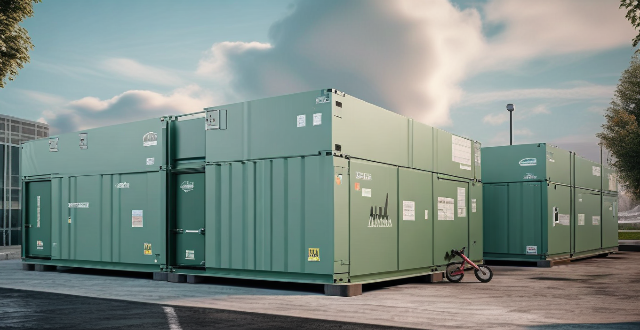Energy storage solutions play a vital role in the electrification of transportation by enhancing energy efficiency, increasing grid resilience, supporting infrastructure development, enabling innovation and new technologies, promoting economic benefits, and mitigating environmental impacts. They help reduce energy waste, optimize renewable energy integration, shave peak demand, balance loads, support charging stations and microgrids, enable vehicle-to-grid technology and advanced battery technologies, reduce costs, create jobs, reduce greenhouse gas emissions, and improve air quality. Energy storage solutions are crucial for overcoming technical and economic barriers to the adoption of electric vehicles and offer a pathway to a more sustainable, efficient, and resilient transportation system.

Energy Storage Solutions and the Electrification of Transportation
Energy storage solutions play a critical role in facilitating the electrification of transportation by addressing key challenges associated with the transition from traditional fossil fuel-based vehicles to electric vehicles (EVs). Here's how:
Enhancing Energy Efficiency
Reducing Energy Waste
Energy storage systems, such as batteries, allow for more efficient use of energy. By storing excess energy generated during off-peak hours or from renewable sources, EVs can utilize this stored energy when needed, reducing waste and improving overall efficiency.
Optimizing Renewable Energy Integration
The intermittent nature of renewable energy sources like solar and wind can be balanced out by energy storage solutions. This ensures a consistent power supply for EV charging infrastructure, making the integration of renewables into the transportation sector more feasible.
Increasing Grid Resilience
Peak Shaving
Energy storage can help "shave" demand peaks by charging during off-peak times and discharging during peak demand times. This reduces strain on the grid and can lower overall energy costs.
Load Balancing
By storing energy when it's abundant and releasing it when needed, energy storage solutions contribute to load balancing. This is crucial for maintaining grid stability as the number of EVs increases.
Supporting Infrastructure Development
Charging Stations
Deployment of energy storage at charging stations allows for faster charging and can reduce the need for upgrades to local electricity infrastructure, making it easier to expand charging networks.
Microgrids
Energy storage is essential for creating microgrids that can operate independently of the main power grid. These can be particularly useful in remote areas or where upgrading existing infrastructure is not feasible.
Enabling Innovation and New Technologies
Vehicle-to-Grid (V2G) Technology
With V2G, EVs can not only draw energy from the grid but also feed energy back into it. This two-way interaction requires advanced energy storage capabilities both in vehicles and at the grid level.
Advanced Battery Technologies
Research into better, more efficient batteries is ongoing. Advances in energy storage technology will lead to lighter, faster-charging, and longer-lasting batteries, further promoting the adoption of EVs.
Promoting Economic Benefits
Cost Reduction
As energy storage technology improves and scales up, costs are expected to decrease. Lower storage costs make EVs more affordable and competitive with traditional vehicles.
Creating Jobs
The growth in energy storage solutions brings new job opportunities in manufacturing, installation, maintenance, and related services.
Environmental Impact Mitigation
Reducing Greenhouse Gas Emissions
By facilitating the transition to electric transportation, energy storage solutions help reduce greenhouse gas emissions associated with the transport sector.
Improving Air Quality
Fewer gasoline-powered vehicles mean less pollution and improved air quality in urban areas.
In conclusion, energy storage solutions are instrumental in overcoming technical and economic barriers to the widespread adoption of electric vehicles. They offer a pathway to a more sustainable, efficient, and resilient transportation system.